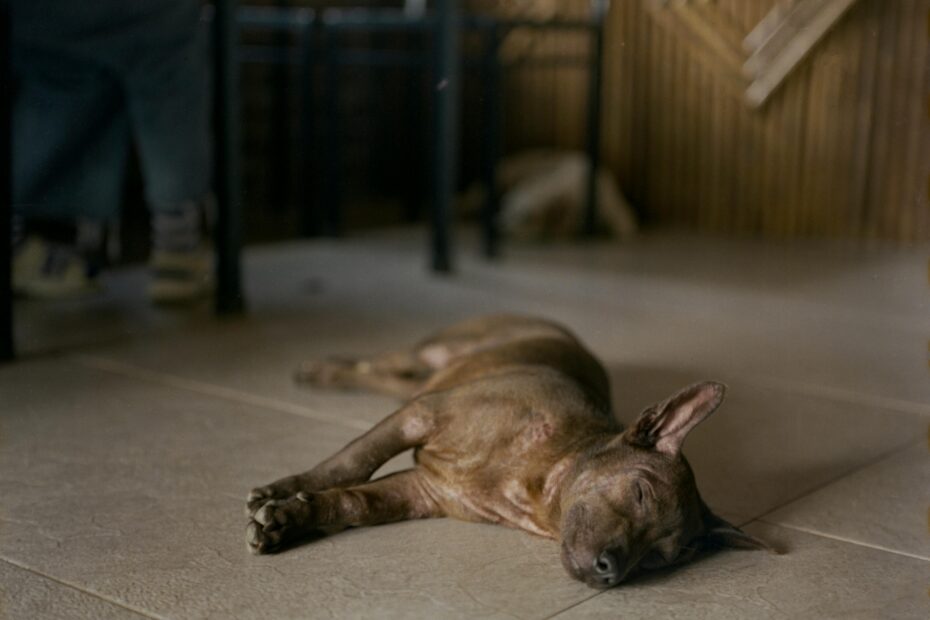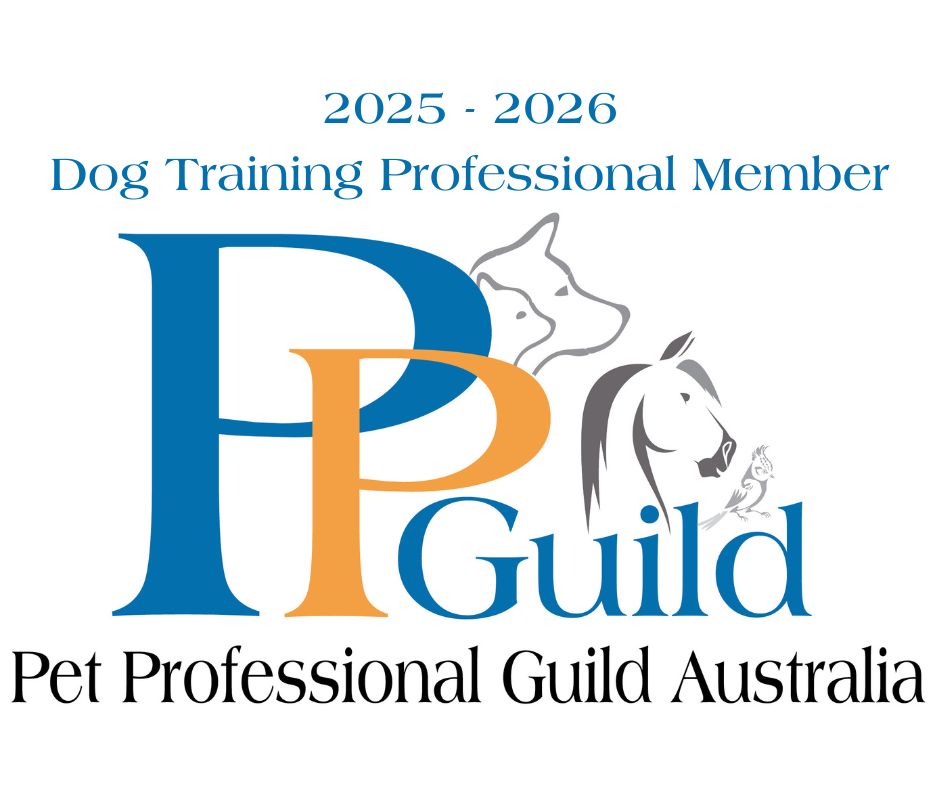Last week I had the pleasure of attending a fantastic webinar hosted by the Pet Professional Guild Australia (PPGA) titled “Sleep, Rest and Recovery for Anxious, Reactive, and Stressed Dogs.” This webinar really opened my eyes to some crucial aspects of canine health that often fly under the radar. So, grab a cuppa (or a glass of wine if it’s after 5pm), settle in, and let’s unpack what I learned!
Why Rest Matters More Than You Think
We’ve all heard the phrase “a tired dog is a happy dog,” right? Turns out, that’s not entirely accurate. Much like humans, dogs need a healthy balance of activity and rest. Over-tired dogs can become reactive, stressed, and frankly, a bit grumpy—just like me if you’ve had the misfortune of being in my early Sunday morning classes when I haven’t slept the night before! Just kidding – I always stay engaged for classes then I go home for my own sleep, rest and recovery.
The webinar, presented by Ian Shivers of Bondi Behaviourists, delved deep into the importance of ‘adequate sleep, rest, and recovery’ for our furkids, especially those who are anxious, reactive, or stressed. Think about it: if you’ve ever pulled an all-nighter, you know how irritable you can be the next day. Now imagine if that was your norm! No wonder some dogs are barking and jumping at the slightest provocation.
How Much Sleep Does Your Dog Need?
Here’s a revelation: adult dogs generally need 16 to 18 hours of sleep a day, including both deep sleep and rest. Yes, you read that right—two thirds of the day! Puppies and older dogs need even more. During deep sleep, their bodies repair and regenerate, while resting allows them to recharge without fully shutting down. If you’ve just got a new puppy, then consider letting them sleep in their bed rather than using their cuteness as an excuse to cuddle up on the couch more often.
For those of you with energetic dogs, this might come as a surprise. But remember, high energy doesn’t mean less need for sleep—it often means they’re not getting enough quality rest. Dogs who aren’t getting enough restorative sleep can exhibit behaviours that might be mistaken for high energy, like excessive barking, chewing, or even aggression. Sound familiar?
Recognising the Signs of Exhaustion
One of the key points Ian emphasised was the similarity between signs of over-exhaustion and over-excitement. Both can lead to behaviours like:
- Excessive barking
- Pacing
- Hyper-vigilance
- Destructive chewing
If your dog is constantly “on alert” or struggling to settle down, it could be a sign they’re not getting enough quality rest. Just like humans, dogs need a chance to decompress and let their brains process the day’s events. This is especially crucial for anxious or reactive dogs, who are often already dealing with heightened stress levels.
The Science Behind Rest
So why is sleep so important? Well, during deep sleep, dogs experience REM cycles—just like us! This is when their bodies produce the endorphins needed for effective recovery. If dogs are disturbed during these cycles or don’t get enough of them, they miss out on these crucial benefits. It’s like waking up halfway through a dream—you’re groggy, confused, and not at all ready to face the day.
But it’s not just about sleep. Rest periods, where dogs are awake but calm, are equally vital. These moments of calm help regulate their adrenal systems, especially for dogs who are naturally anxious or stressed. If your dog spends too much time being alert or reactive, they might be burning out their adrenal systems, leading to something called ‘adrenal fatigue’. And no one wants a frazzled Fido!
Practical Tips for Better Dog Sleep
Ian shared some great tips for creating an environment conducive to rest and recovery:
1. Multiple Resting Spots: Have several comfy spots around the house where your dog can rest without being disturbed. These should be away from busy areas like hallways or near windows where they might be tempted to stand guard.
2. Encourage Calm Behaviours**: Reinforce calm and independent behaviours with treats or toys that promote relaxation, like a stuffed KONG or a Lickimat. This helps
3. Avoid Over-Stimulation: Reduce access to areas that might cause stress or hyper-vigilance, like windows or busy front doors. About now my students are hearing me say “practice makes perfect”.
4. Respect Their Rest: If your dog is napping, try not to disturb them. Just like you wouldn’t want to be shaken awake from a cozy nap (unless it’s for pizza and wine, of course).
5. Rest and Sleep Patterns: Ever heard of sleep hygiene? Just like us our dogs need rituals around sleep and rest. These patterns help our dogs to understand when it’s time to play and when it’s time to rest. In my house our pattern is: TV goes off, doggos go out for a wee, then a long lasting chew in their bed and lights off means it’s time to go to sleep.
Is Your Dog Over-Tired or Over-Excited?
Now, you might be thinking, “My dog seems to have boundless energy!” But here’s the thing: sometimes dogs who seem hyperactive are actually over-tired. Yep, just like that kid at the family reunion who’s been running around for hours and suddenly has a meltdown. Dogs are the same way. They don’t always know when to call it quits, which is why it’s our job as dog guardians to help them find that off switch.
Listen to Your Dog!
My biggest takeaway from the webinar was learning to listen to our dogs’ needs. If they’re constantly on the go, it might be a sign they need more rest, not more activity. So, let’s prioritise some sleep, rest and recovery for our Furkids.
If you’re looking to deepen your bond with your dog or address specific behaviour issues, check out my services at Little Angels Dog Training. I offer personalised in-home consultations and fun, games-based training sessions that are perfect for dogs of all ages and temperaments.
For more tips and guidance on canine behaviour, you can also visit Bondi Behaviourist. I highly recommend that you download their eBook on The Five Pillars of Emotional Health and if you’re interested in more resources, and webinars like the one I attended, consider joining the Pet Professional Guild Australia. They have a treasure trove of information for all things pet-related and Pet Owner membership is free.
Until next time, happy training and even happier napping!
Game On! Let’s Play
Hxx
- Written with the assistance of AI
- Links have been manually checked


